WHY THE ACTRESS IS MUCH MORE THAN JUST A BRITISH COMEDY ICON
by ASJAD NAZIR
THERE is a lot more to Nina Wadia than the iconic comedy series Goodness Gracious Me.
The acclaimed actress has had a trailblazing career that has seen her deliver a wide array of winning performances in major projects, entertain millions and inspire a generation to follow in her footsteps. The hard-working star has become one of the most familiar faces on UK television in the past two decades and balanced that with tireless work for charitable causes.
Although Nina is constantly in demand to be part of big mainstream TV projects like new ITV series Too Close, she found time during lockdown to create the wonderful Lockdown Mutha, a comedy series of short social media sketches about a frustrated mother and her abusive teenage children.
Eastern Eye caught up with British treasure Nina Wadia to talk about her amazing journey, Lockdown Mutha, why she thought her recent OBE award was a prank and top acting tips.
You don’t seem to age – what is your secret?
(Laughs) I feel like I age every time I look in the mirror. It is a variety of home creams and things I have come up with. Maybe I will patent them all one day and sell them.
How has lockdown been for you?
Oh gosh, lockdown has been a rollercoaster ride. There have been some great moments and then a few very dark moments, so there’s been ups and downs.
What is the biggest life lesson it has taught you?
Appreciating the ability to have time in your life. Time is the most precious thing you can give, even as a gift, to people. I’m always rushing around, busy doing projects, being a mum, teaching the kids. This was the first time that life just kind of went stop and now just do this. So, I appreciate time more than anything else at the moment.
How did you feel when you were told about your OBE and is it true that you thought it was a prank?
I definitely thought it was a prank. The call came through on my birthday. My friends, who I have known since I was 11 years old, always mess around so much with me on that day. So, when I got the call with someone saying ‘I’m calling from the cabinet office,’ I was like, ‘F**k off,’ and I put the phone down. (Laughs) I thought it was funny and wondered which friend it was. Then the person called back and I thought, maybe it’s not a prank the second time round.
What did you do?
He said, ‘Look, I understand you’re being a bit sceptical, so why don’t you google cabinet office and call back and ask for me?’ so that’s what I did. At that point, I thought, ‘My goodness, this is real’, and I was stunned. He said, ‘Check your email’, and there was the message marked ‘completely confidential’. (Laughs) But the first thing I did was run to my husband and ask, ‘Is this real?’ It was a very nice surprise, but I was more incredibly thrilled than anything for the charities that I work with, because when you have a title attached, it helps them raise more money. So I was over the moon about that.
What inspired your superb social media series Lockdown Mutha?
Lockdown Mutha is inspired by real-life events. I’ve got teenagers – a 17-year-old and a 14-year-old. We’re all big personalities in our house. We are all jokers, so it started with me going into my son’s room and saying to him, ‘You’re meant to be doing your homework, not sitting there playing games’. He said passionately, ‘Ah mum, please get out of my room.’ I don’t know why, but it made me laugh. I thought, there are mums all over the world right now absolutely pulling their hair out because kids are so bored and there is no hope of school starting again soon. They are just like running riot a bit.
What happened next?
So I said to my son, ‘I’m gonna come back to your room and tell you to get off your game, and I want you to do the same thing, tell me to get out.’ But instead of saying ‘Get out’, he told me to ‘F off’. I was so shocked that he did that and went ‘Ugh, fine’, staying in character. I came out of the room, switched the camera off, and yelled at him, saying ‘You can’t talk to me like that.’ He said, ‘I thought it would be funny,’ and actually, it did make me laugh. From there, I thought it would be funny if they were just really mean to me and swore at me every time.
Do your children enjoy being so mean to you in Lockdown Mutha?
They love it. Are you kidding me – they get to be rude to mum and there are no consequences. The nice thing is lots of other mums and actor friends have sent me ideas. So, there are people just going, ‘I look forward to these because I try to recognise if this happens in our house.’ Nine times out of 10 it does. You know, obviously, in real life we wouldn’t tolerate the actual abuse, but these are moments of frustration for parents all over the world. My daughter put that on Tik Tok and set up an account for me. The videos have now got about 1.3 million views. I’m thinking, ‘What?’
Is this something you would want to develop into a bigger project?
I would love to create a sitcom around her and teenage life. My husband and I have a little production company, so if there are people out there, we are more than happy to create it for them.
You are associated with comedy, but people forget that you are a classically trained actress...
My big love is Shakespeare, always has been, always will be. I trained in classical theatre. I did seven years worth of that, but at that time for brown actors, it was a lot harder. In my generation, trying to be taken seriously and getting lead roles, especially in Shakespeare, was never going to happen. In Romeo and Juliet, I’d be the nanny. If it was an Indian-based production, I got to play Juliet, but otherwise, I would always be the best friend or the girl next door. That would bring me down a lot because there was a constant struggle.What about now?
I’ll be honest with you – with the career I have had, I was hoping by now I would have my own series of some kind, but I still only ever get supporting roles, which is frustrating. It makes me question, are people right in saying that actually, if you are brown, you’re not cool enough to be the lead, especially as a woman? That’s the other added layer. I have a constant joke that if I was also a lesbian with one leg, I would never get cast in anything. It’s just so difficult being female and brown to keep going, but I do and take on any role, whether it’s small or big. I just do my best with it and hope that some producers somewhere will go, ‘Actually, she could lead a show now.’
What is the secret of a great performance?
Do your research. Do your work for it. Go back to what you learned at drama school – what’s the background of this particular character? You do it for the smallest or biggest role. Then, for me, the secret is the detail. I always find there is a lot to be had with the detail in the character. A little thing that you can do, even in comedy, where you find a little quirk which works for that character, whether it’s a twitch, the way she picks something up, or uses props. It’s in the details. Find out what would make her different from anybody else.
What got you into comedy?
Basically, there was no licence to cast brown actors, as much, as leads in dramatic roles. Before Goodness Gracious Me, we had our own show at the Theatre Royal Stratford East called D’Yer Eat With Your Fingers, co-written by a bunch of actors. When we performed at Theatre Royal Stratford East, we were given one weekend. It sold out so quickly, they gave us two weeks. It was brilliant and it was from D’Yer Eat With Your Fingers that I got seen by the Goodness Gracious Me team, who then took me into television. (Laughs) I was terrified ’cos I had never done television before.
How do you feel about the fact that you are a trailblazer and so many others have followed in your footsteps?
That’s so cool. I mean, I do remember only one season had been out and all of a sudden people were saying, ‘you guys are role models.’ I remember thinking, ‘what do you mean? I’m just an actor doing a show, I have no idea what you’re talking about.’ I was just happy to make people laugh, but it dawned on us very quickly that there was nothing else like that around. You know, we were genuinely doing something that Asian actors were never given the opportunity to do before, which was to just create, be funny and in control of our own show. That was a huge thing.
You all became huge very quickly...
There’s the joke – that we went from being on Goodness Gracious Me to handing out awards at ceremonies, but we never actually went on stage to get all the awards. We just literally went straight into the role model’s zone, and we thought, ‘What’s happening?’ But it happened because it was necessary. There was no one else doing it.
Since there was no one before you doing that, who were your influences?
My comedy influences came from growing up in Hong Kong and getting US TV there. I would hide when I was 14-15 years-old and watch Eddie Murphy, Robin Williams and Joan Rivers – because of the amount of swearing in their stand-up routines, I would have to hide and watch it ’cos my parents wouldn’t allow me to otherwise. So, comedy with swearing was my drug. Those were my influences, but there was no one brown that I could go, ‘God, isn’t he or she brilliant?’ There really wasn’t anyone out there, you know, for us to do that, so I think that’s why we ended up having to take on this role. But it didn’t sit right with me, I’ll be honest.
What do you mean?
I found it quite uncomfortable to be put in that position. I’m better with it now because I’m older, but when it came to me when I was younger, there was a lot of responsibility that went with it.
Today, what inspires you as an actress?
I would say, actually, we’re in a time finally now when brown people are being given a chance. I’ve turned 50 and so for me, it’s finally seeing there is a possibility that one day I can have my own show, and actually, you know, have complete creative control over what I want to do. That would be a dream come true for me, so that’s what is inspiring me now to keep on going.

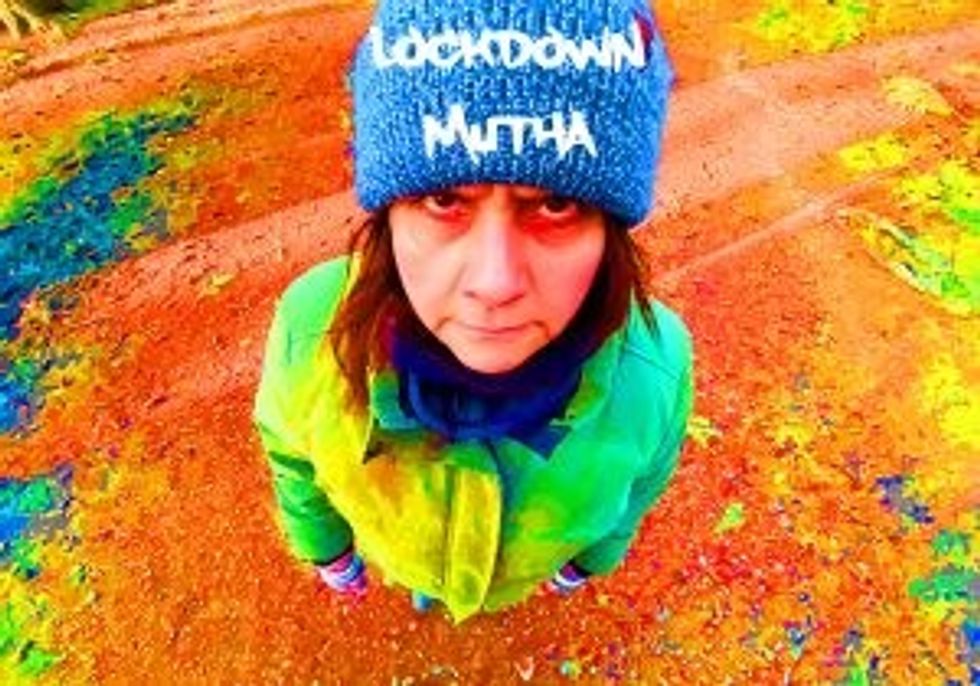





 Milli Bhatia
Milli Bhatia










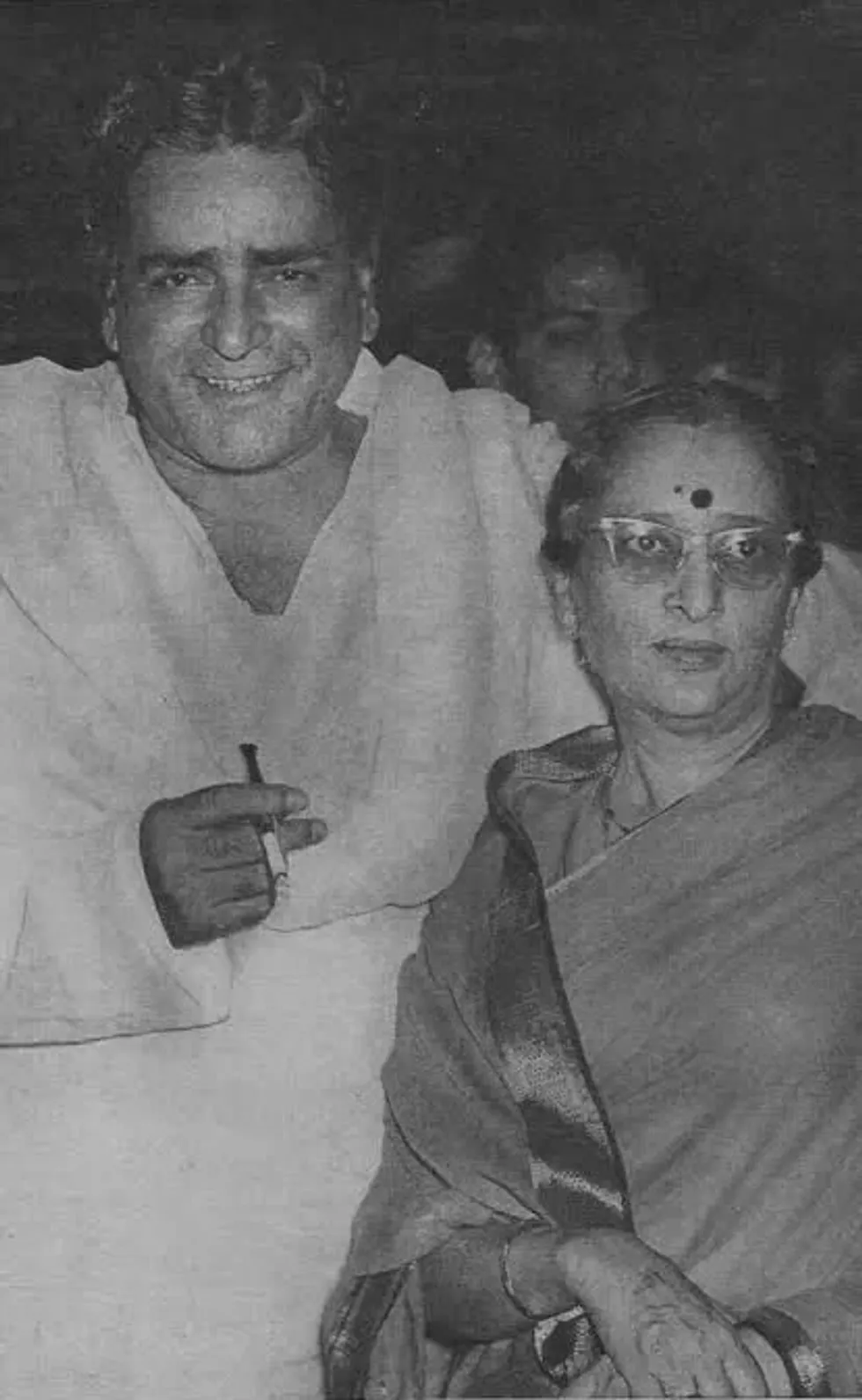 Prithviraj Kapoor and Ramsarni Mehra Reddit/ BollyBlindsNGossip
Prithviraj Kapoor and Ramsarni Mehra Reddit/ BollyBlindsNGossip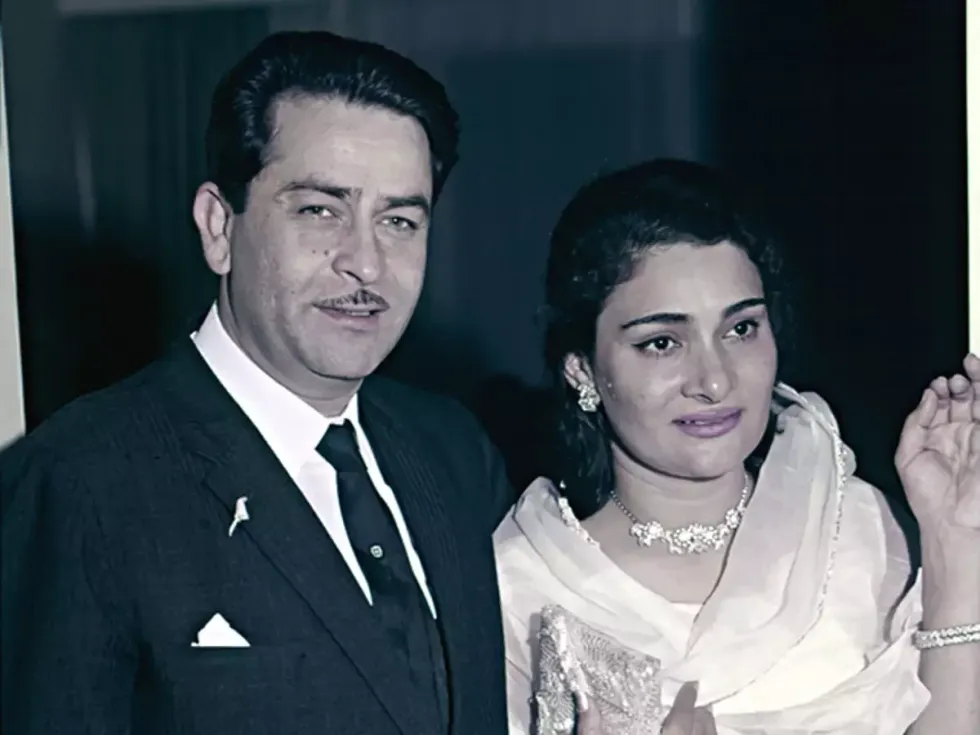 Raj Kapoor and Krishna MalhotraABP
Raj Kapoor and Krishna MalhotraABP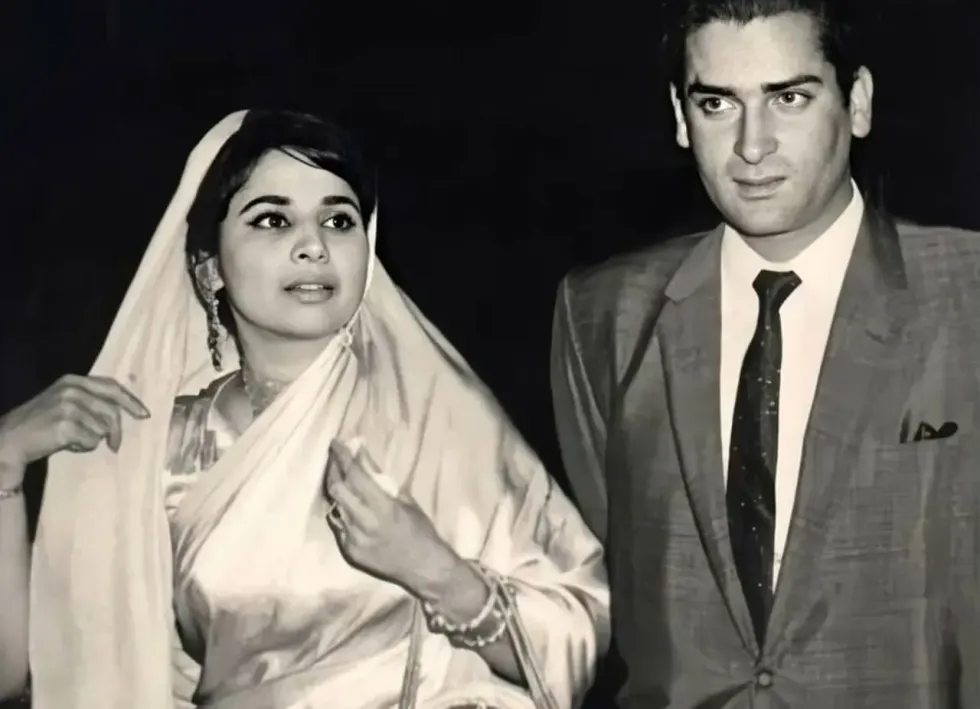 Geeta Bali and Shammi Kapoorapnaorg.com
Geeta Bali and Shammi Kapoorapnaorg.com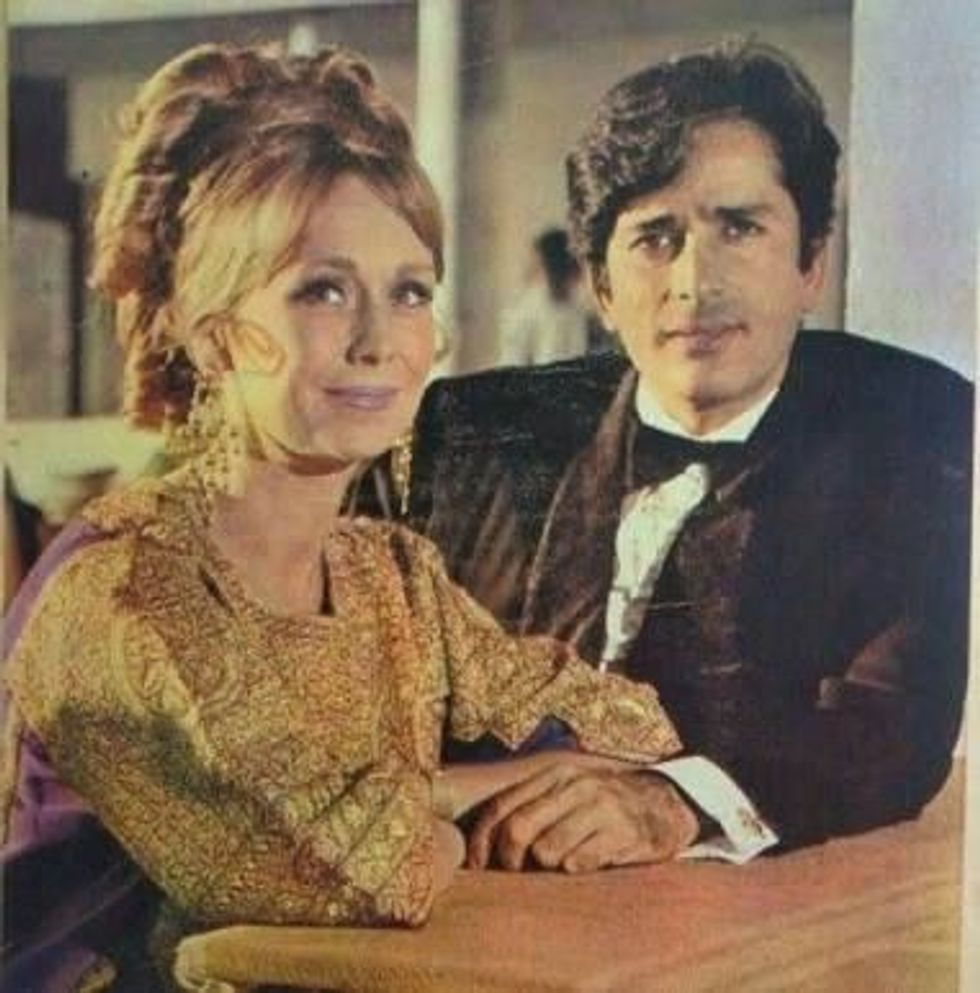 Jennifer Kendal and Shashi KapoorBollywoodShaadis
Jennifer Kendal and Shashi KapoorBollywoodShaadis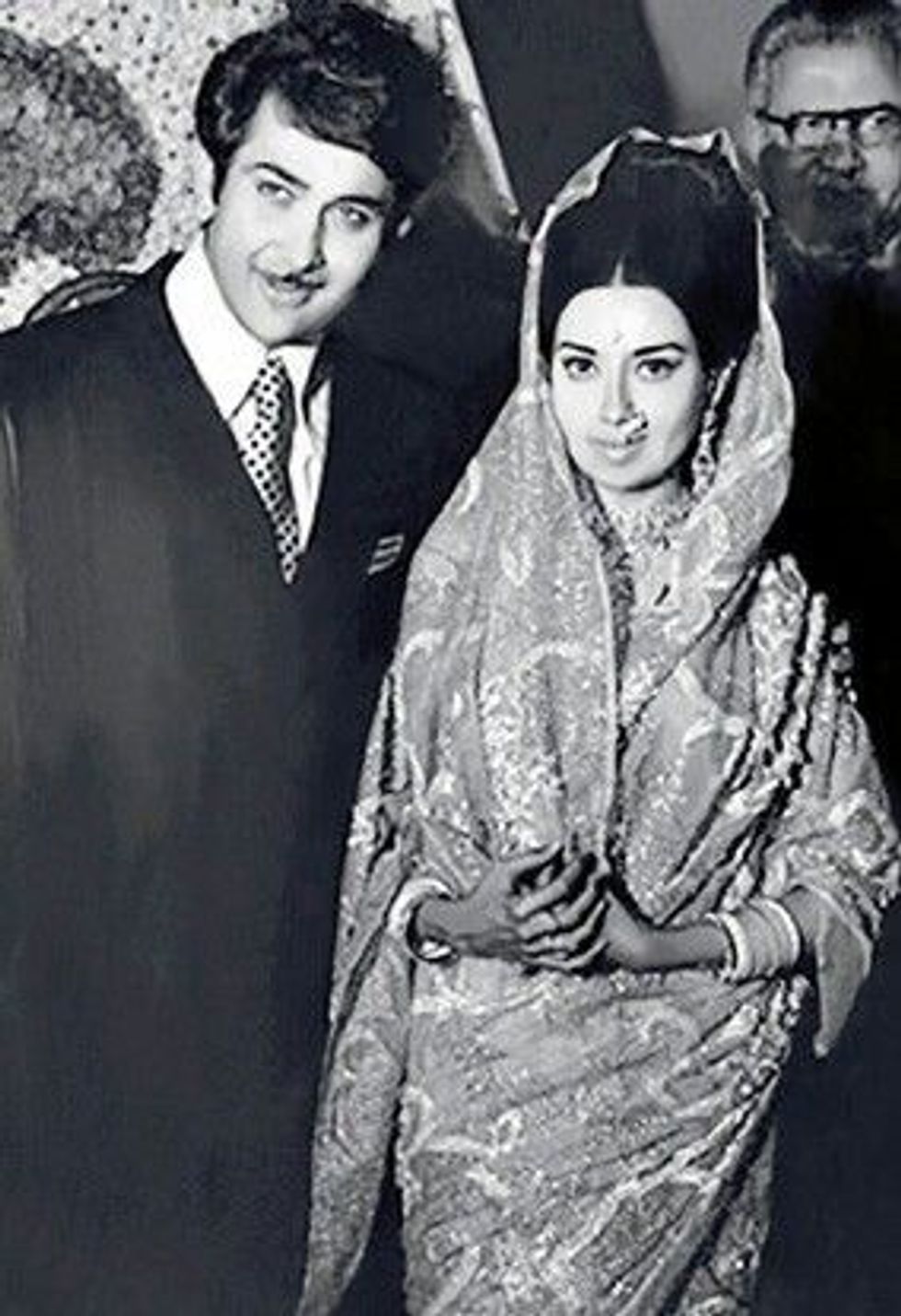 Randhir Kapoor and Babita BollywoodShaadis
Randhir Kapoor and Babita BollywoodShaadis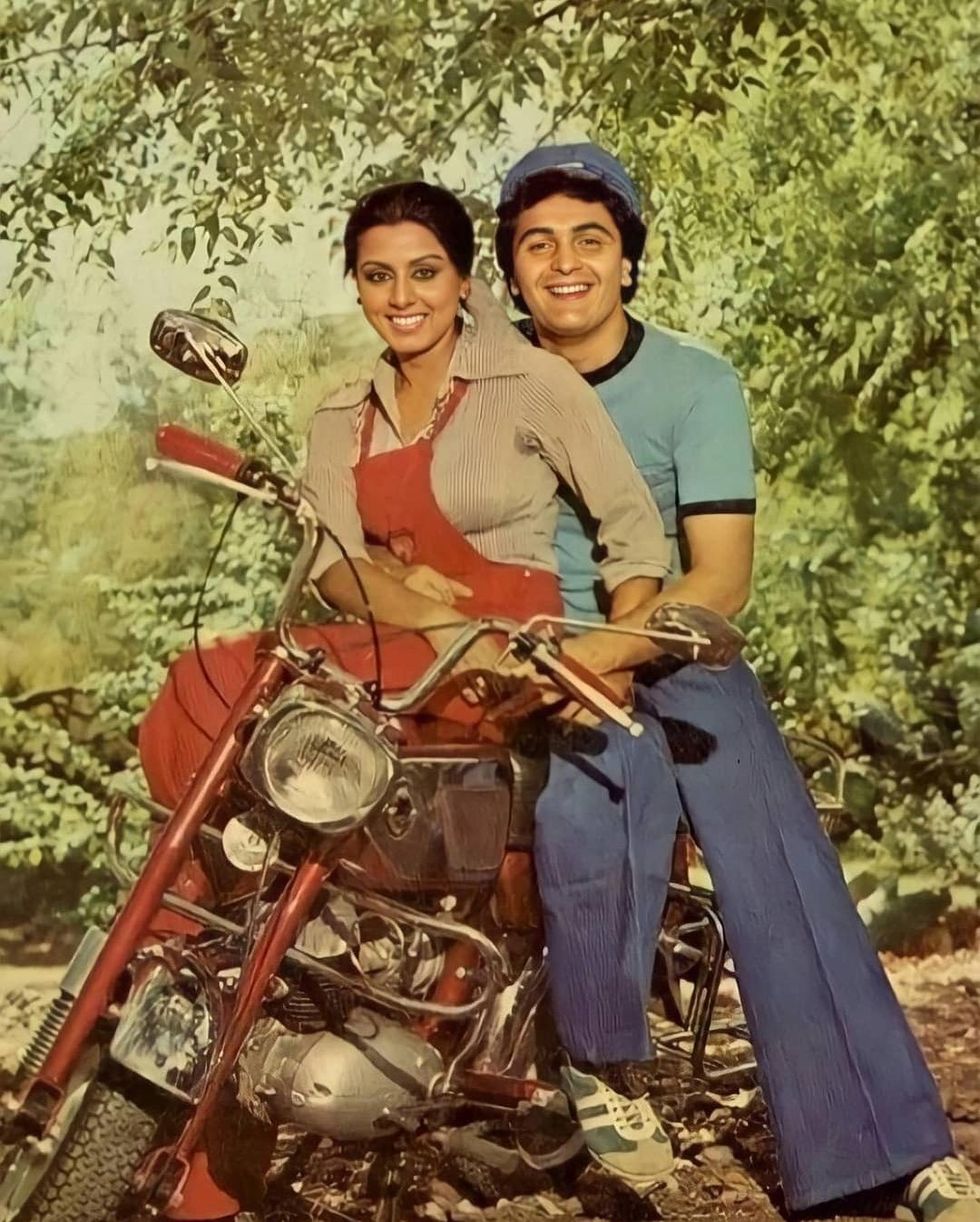 Neetu Singh and Rishi KapoorNews18
Neetu Singh and Rishi KapoorNews18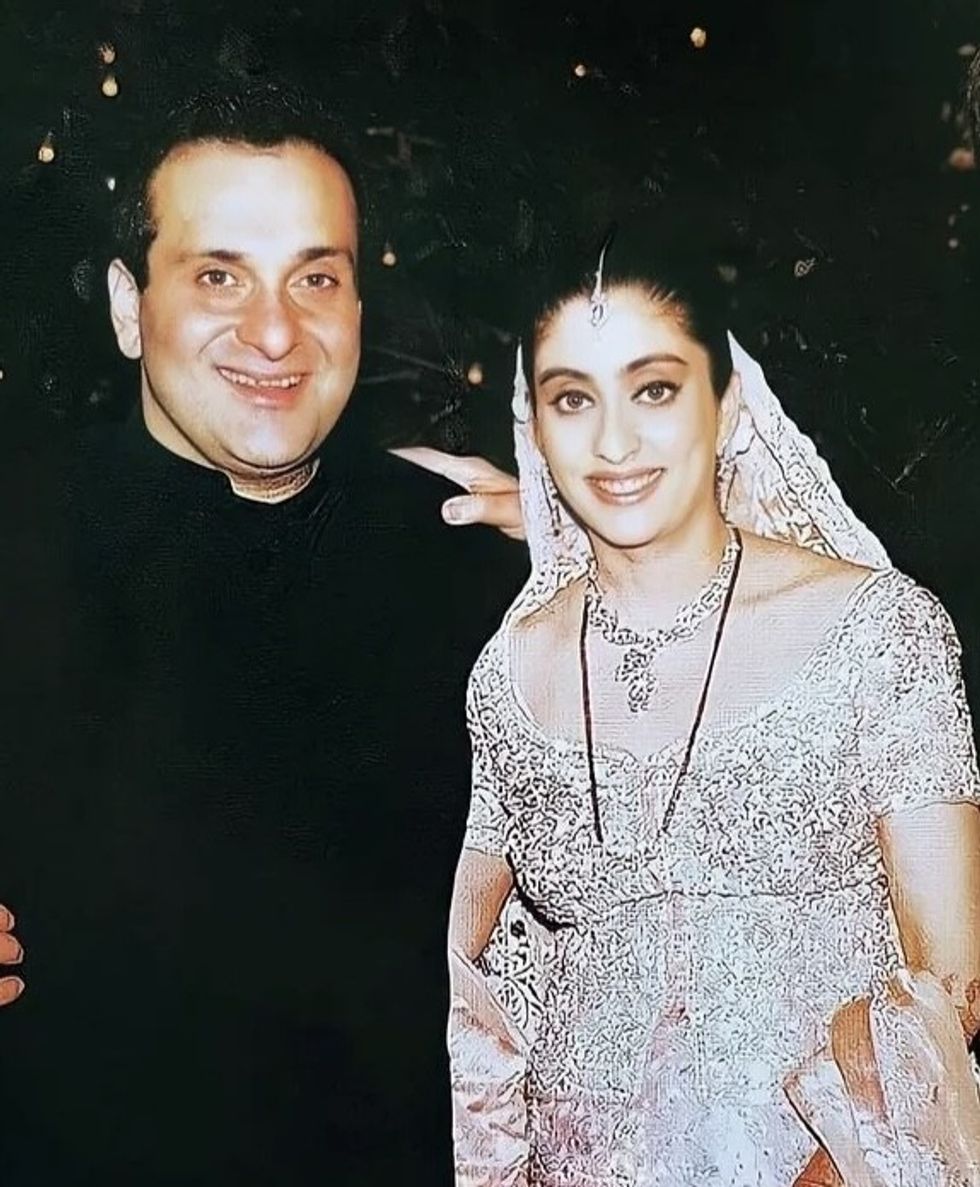 Rajiv Kapoor and Aarti Sabharwal Times Now Navbharat
Rajiv Kapoor and Aarti Sabharwal Times Now Navbharat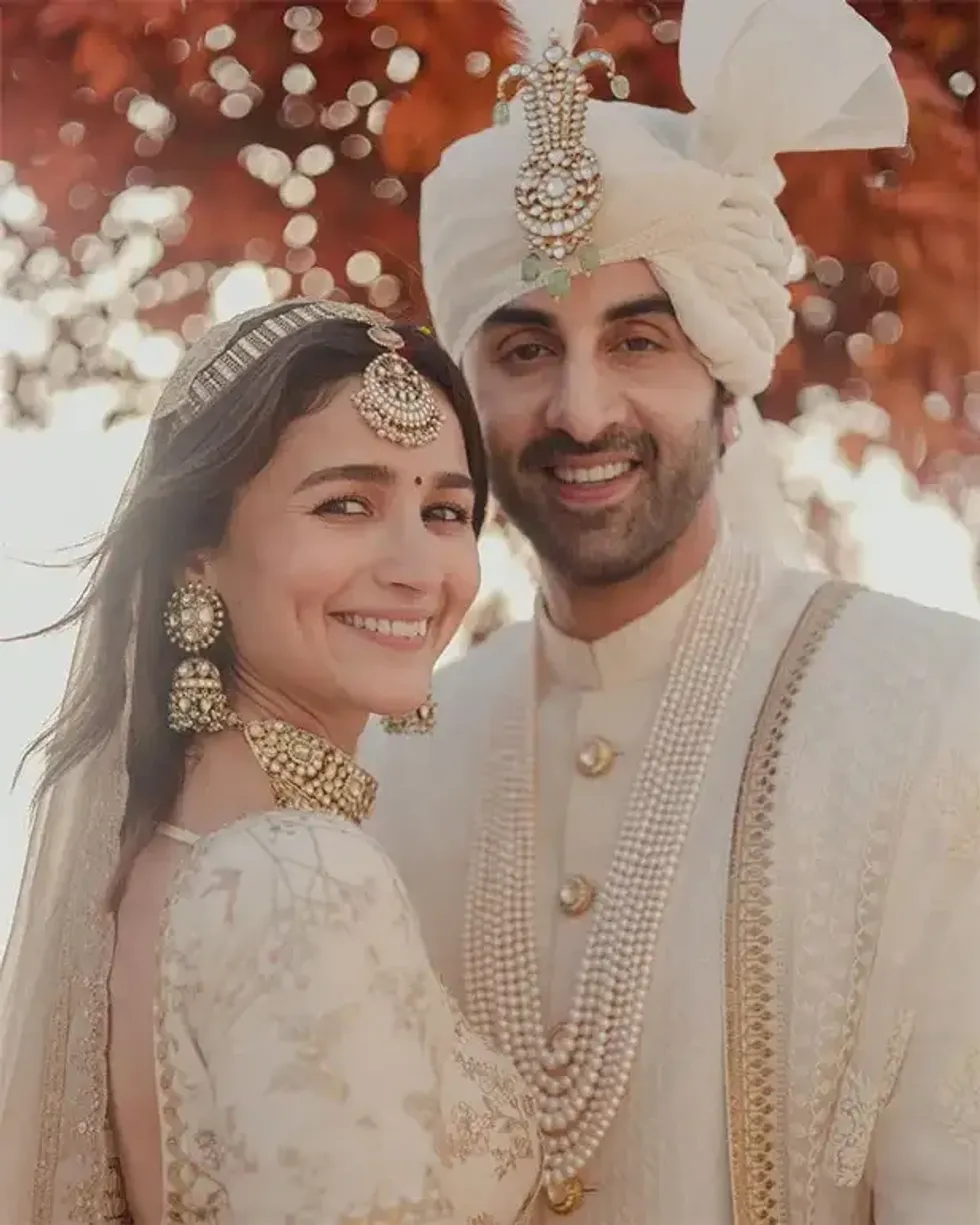 Alia Bhatt and Ranbir KapooInstagram/ aliaabhatt
Alia Bhatt and Ranbir KapooInstagram/ aliaabhatt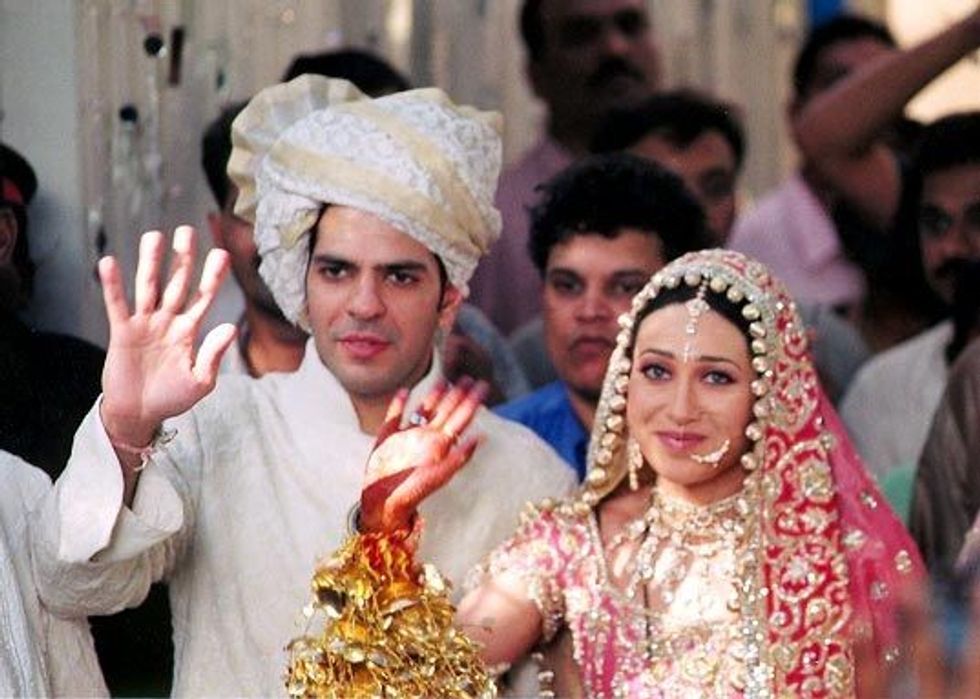 Sunjay Kapur and Karisma KapoorMoney Control
Sunjay Kapur and Karisma KapoorMoney Control
 The real Aurangzeb, the sixth Mughal emperor
The real Aurangzeb, the sixth Mughal emperor Protesters burn a poster of Aurangzeb demanding the removal of his tomb in Nagpur in March
Protesters burn a poster of Aurangzeb demanding the removal of his tomb in Nagpur in March Akshaye Khanna as Aurangzeb
Akshaye Khanna as Aurangzeb Raj Thackeray
Raj Thackeray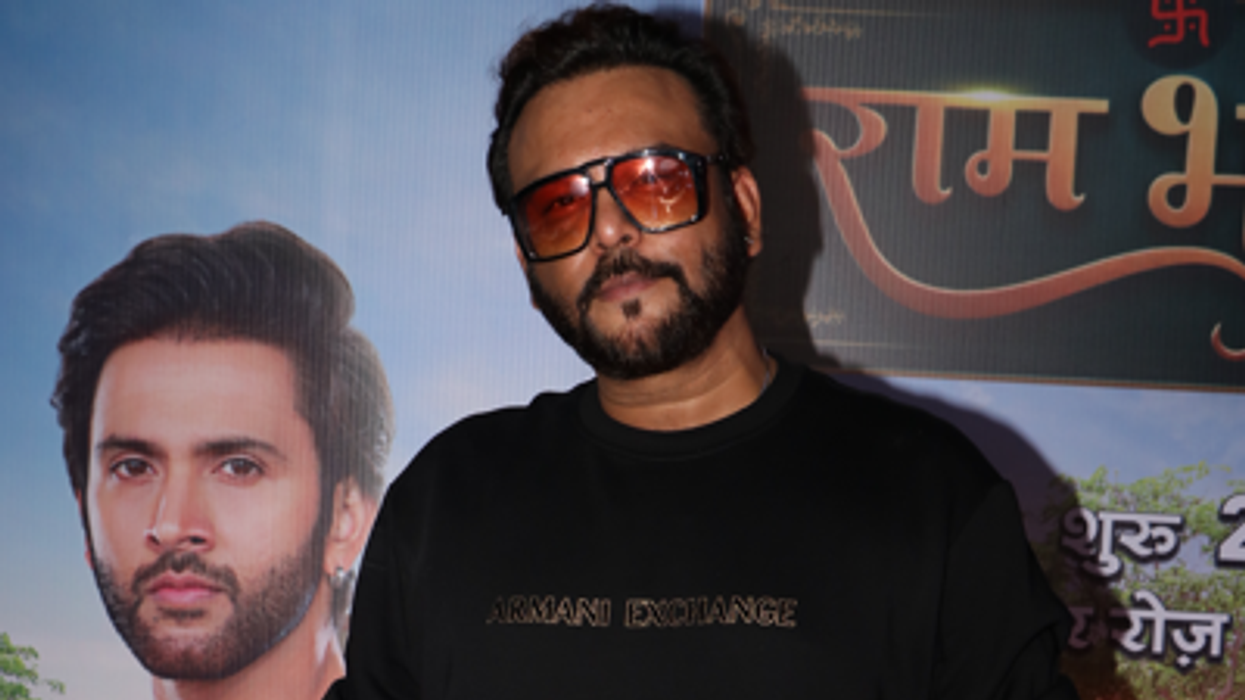
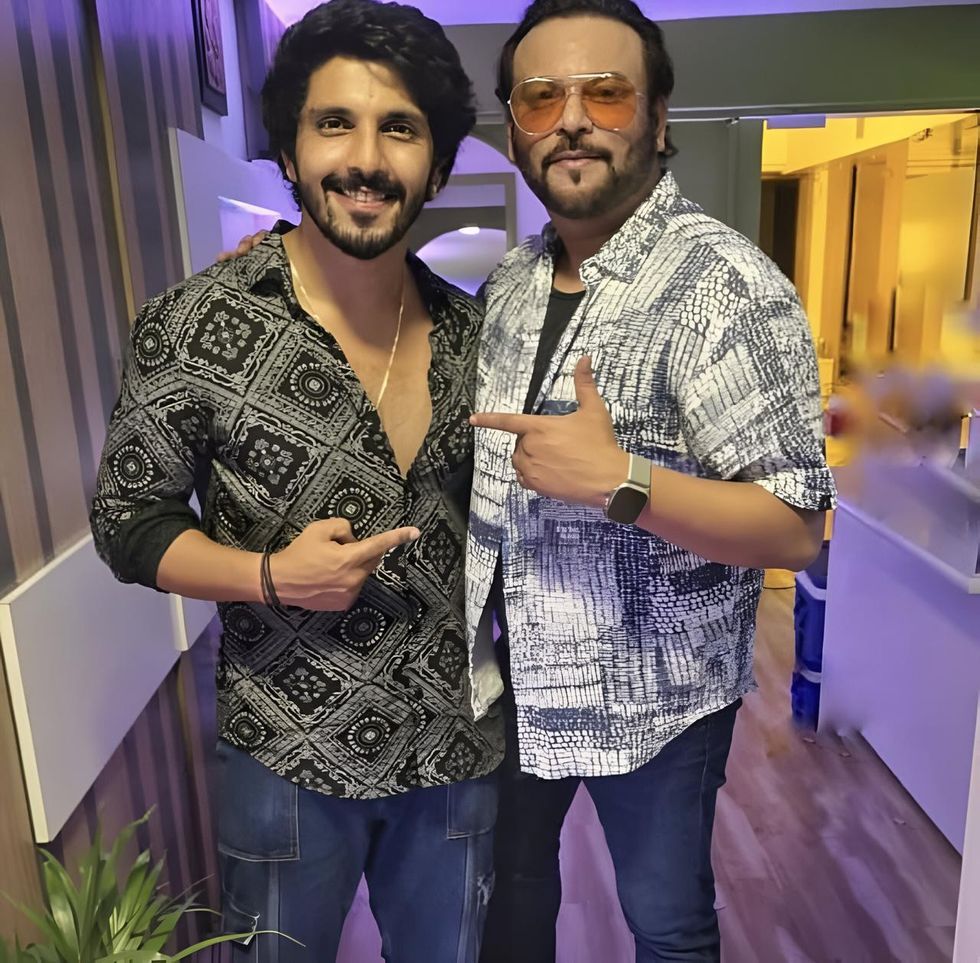 With actor Kanwar Dhillon in 'Ram Bhavan'Instagram/ rahultewary
With actor Kanwar Dhillon in 'Ram Bhavan'Instagram/ rahultewary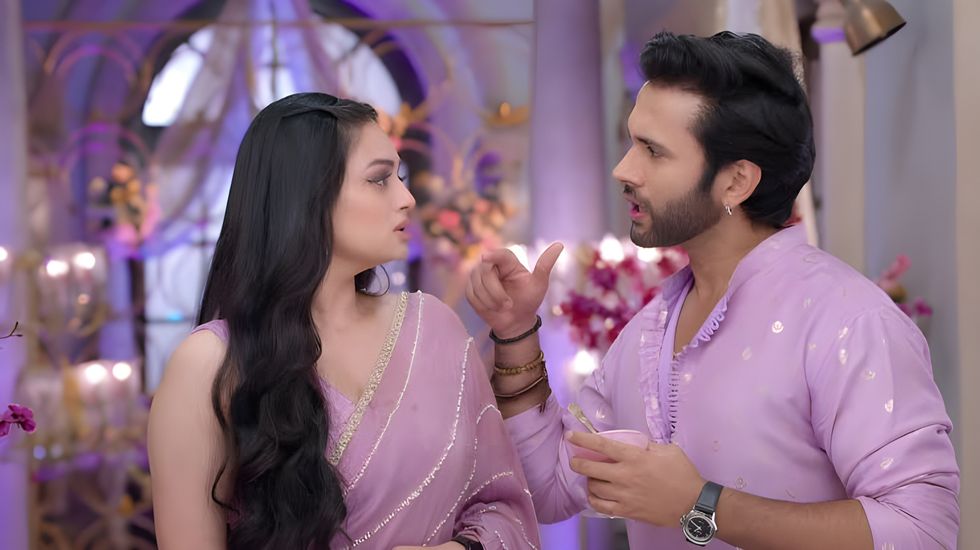 Udne Ki AashaScreen Grab 'Udne Ki Aasha'
Udne Ki AashaScreen Grab 'Udne Ki Aasha'